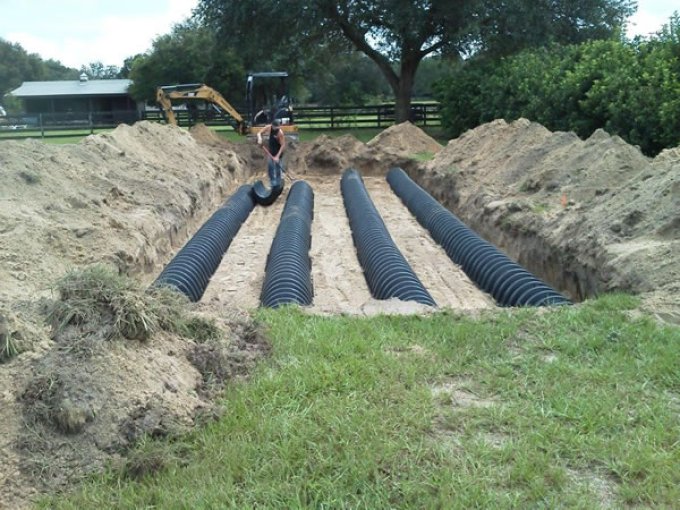Get It Safely Pumped Today
Get It Safely Pumped Today
The drainfield, also known as leachfield, is the part of your yard where the wastewater leaving your septic tank drains before sinking into the soil. Weight on the field, tree root intrusion, too much water entering into the septic tank, and poor maintenance are just a couple of reasons drainfield issues arise. To avoid these problems, the experts at Septic Pumping of Raleigh have provided some tips and suggestions below.
Avoid Putting Weight on the Drainfield

Parking or driving vehicles over your leach field can damage drain pipes in the underground trench, without you even knowing. Identify the part of your yard housing the leach field and make sure no one drives over the area. Also, avoid construction activities on the field to prevent damage to the drain lines.
Tree roots easily grow through perforated sewer pipes. Uproot water-loving and deep-rooted vegetation growing close to the drainfield to avoid root intrusion. If the perforations in the pipes get blocked, you may have to replace the drainfield.
Furthermore, lush vegetation around the field might indicate a failing system. Once you notice this, contact your local septic care company for immediate inspection. For expert assistance, the specialists at Septic Pumping of Raleigh will be glad to help.
Water Loads
Too much of water entering the septic tank can overwhelm the system and rapidly increase the flow of wastewater to the drainfield, which in turn saturates the underground trench. To prevent this situation, avoid doing back to back loads of washes. Rather, space out your laundry days. If you discover your leach field is soggy, contact a service professional to keep the situation in check.
Not Pumping Out the Septic Tank on Time
As a general rule, septic tanks should be emptied every three to five years. The frequency of pumping will, however, depend on the number of people occupying the house and the amount of wastewater generated.
If pumping need is left unattended to, sludge can build up, causing the lumpier stuff to leave the tank and clog the drain pipes. To determine if your tank is due for emptying, contact a local service professional for immediate help.
Poor Maintenance
Don't put non-biodegradable items down the drain. Foreign materials can clog the drain lines. Grease, oil, or similar substances should also be prevented from entering the system. When you notice sewage odors around drains, tank, or leach field, immediately reach out to your local septic cleaning company for professional help.
Need Expert Help
If you've been struggling with drainfield issues, then now is the time call a professional for expert assistance. This will help you put the system under control again before it fails. The experienced experts at Septic Pumping of Raleigh will be happy to provide the help you need. We offer a wide range of septic services, including drainfield maintenance, installation, and replacement as well as septic pumping and inspection. to learn more about our septic cleaning services or to schedule a convenient inspection with an expert in your neighborhood, contact Septic Pumping of Raleigh.
Standing water in your yard is never a good sign, but when it shows up near your septic tank, you'll want…
Scheduling a septic service appointment is easy enough, but most homeowners have no idea what's supposed to happen once the truck…
Anyone can show up with a truck and a hose, but septic work isn't just about pumping and leaving. The difference…
The buried tank in your yard works around the clock to process everything that goes down your drains. And, it does…